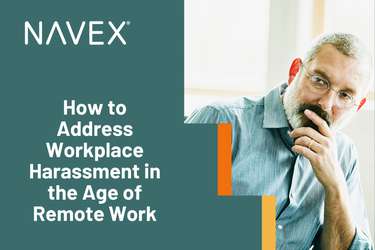This blog is part of the You Can't Delegate Ethics campaign. The campaign posits that systemic change on the issue of sexual harassment will occur only when good people in power take responsibility for the issue and create workplaces that do not tolerate it.
The fact that sexual harassment continues to dominate the headlines hopefully foreshadows some fundamental changes in how organizations identify and deal with this insidious cultural failure. And we all have something to learn. First, harassment is an age-old problem; decades of regulatory or policy proclamations have not been able to stop or prevent it. Second, this isn’t just a male to female issue – it happens in all directions and involves many dynamics. Third, and most importantly, it is not a compliance issue; it is an abuse of power issue.
Change will only occur when all senior leaders and boards of directors own the elimination of harassment and no longer tolerate its perpetuation.
As we continue to learn from the news reports, many organizations clearly tolerated this behavior or looked the other way for years because they could – certain harassers had great power. This is why delegating responsibility for this issue to HR or Compliance does not work. Change will only occur when all senior leaders and boards of directors own the elimination of harassment and no longer tolerate its perpetuation. Today, good people in power need to take responsibility. If you are in a position of power, you cannot sidestep your responsibility on this issue. You can’t delegate ethics. As Bob Conlin, NAVEX Global CEO, stated, “Policies and training will continue to be important, but more important is taking bold and decisive steps to fundamentally change workplace culture.”
Join the discussion group on Compliance Next
Watershed Moments Need Real Action & Leadership, Not More Policies & Regulations
Recently, TIME named “The Silence Breakers” Persons of the Year for 2017. This sounds very much like a watershed moment and it is giving many great hope. But I remember another TIME cover naming “The Whistle-Blowers” as Persons of the Year. This was in 2002. Remarkably, and I did not recall this until doing research for this blog post, they were all women – Cynthia Cooper of WorldCom, Coleen Rowley of the FBI, and Sherron Watkins of Enron. These women faced the same potential retaliation as “Silence Breakers” face today. Honestly, not much has changed. Fear of retaliation remains one of the biggest cultural challenges for organizations today. And retaliation is most often included in complaints to the Equal Employment Opportunity Commission (EEOC) along with complaints of harassment and discrimination. Retaliation too, is an abuse of power issue – not a compliance issue.
In 2016, before Weinstein, before Susan Fowler and Uber, before case after case monopolized the headlines, we had another missed opportunity for concern and real action. The EEOC released a report on harassment in the workplace. It stated harassment is a persistent problem; it too often goes unreported; there’s a business case for preventing it; and prevention starts at the top.
We’ve had all of the warning signs, yet why hasn’t anything changed?
Because time and time again a group of courageous individuals get their fifteen minutes; we delegate ethics, we write some new regulations or policies, and then we pass the buck and go back to business as usual. And worse, we bury ethics and accountability in the cloak of compliance programs. For this watershed moment to truly make a difference, organizational leaders need to address the real problem behind both harassment and retaliation – the abuse of power. Leaders and board members must be accountable for the culture of, and the behaviors in, their organizations – their responsibilities extend beyond just the financial results. Ethics can’t be delegated. Responsibility can’t be shirked. Accountability must be owned at the highest levels.
We are all still defining the scope of this issue and the best course of action to eliminate it. But often times when there is not an immediate fix, our search for improvement wanes and our attention fades. So what we need now is for all organizations to amplify the voice of the solution seekers and engage boards and leadership teams in identification and ownership of the solutions for the real problem – abuse of power.
What do you have to say? Share your thoughts in the comments below or join the discussion group on Compliance Next.









